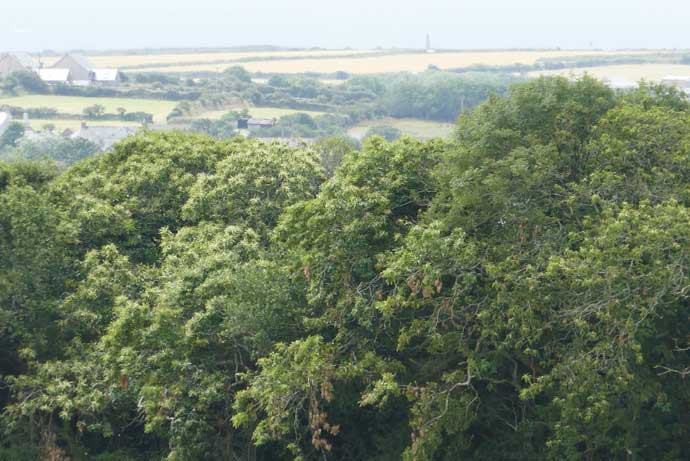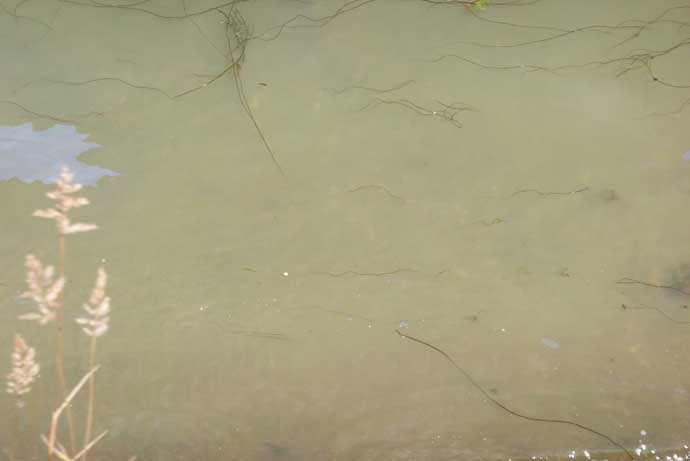It should be arresting, or at least attention-getting, and it should deliver the reader quickly to the second sentence, which can include lots of commas and subordinate clauses. Third sentence can be short. The fourth, if there is one, rounds off the paragraph so that we can move on to the next.
There’s a thing about rhythm, too. Long sentences, short sentences, maybe a rhythm that flows with the logic of what you’re saying.
It’s a speech rhythm, I suppose, and I’ve heard writers talk about finding the tone of voice that goes with what they’re trying to say. That, I suspect, has to do with the idea that you’re always writing (speaking) to one person.
If you’ve got your ideal reader perched above your laptop screen, or settled in your head somewhere, you can work out – intuit, maybe – the tone of voice that goes with speaking to that individual. Same principle as if you’re bouncing a toddler on your knee, or facing an interview panel for a senior post with a high security clearance. Save the baby talk for the – shall we dispense with the predictable joke here?
I said “that individual”; I could have said “that representative of your audience”. I’ve heard it said that when you make a speech, you should pick out members of the audience, one at a time, and speak directly to them, in turn. Reduce the whole thing to a human scale by addressing your remarks to representative members of the audience, rather than the whole mass of faces all at once.
Of course, you don’t want to deliver your entire speech to the increasingly unnerved-looking woman in the third row, which is why I suggest eye contact successively with him over there, her over there, him up there … and so on. You’re talking to another human being, and with any luck, they’ll respond with an appropriate facial expression.
But this is a complete digression from the idea of writing to one person. I can see you there, smiling slightly, one eyebrow raised (now try the other one; bet you can’t), shifting slightly in an effort to make that big chair more comfortable. Is it some kind of throne? Is it resin? Never mind – I’ve got you in my mind’s eye, and I’m writing this for you.
Put down that mug. You’ve had quite enough coffee for one day.
If you’re writing something big, start anywhere and think about the step rather than the mountain. But start. Put the map down, stop discussing routes and start walking. If you’re writing something short – well, you’re nowhere until you’ve got your opening sentence.
Oh, well done. I wasn’t sure if you’d seen him creeping up behind you. All that martial-arts training finally paid off.
Sketch it out and plan it and make notes, et cetera, if you must, before and after finding the simple, declarative statement that is your opening sentence, but don’t think you’ve achieved anything by covering sheets of paper (screens, files, docs; I’m showing my age) with writing about what you’re going to write. Planning is a way of not starting.
Oh, it’s you now. Actually, it’s been you all along, hasn’t it?
What? My usual thing about not starting with the intro? I was going to abbreviate it. You know how, when people write to tell you about something, they sometimes start “I am writing to tell you about something”? My old mentor used to talk about “throat-clearing”; if he got something that didn’t strike him as quite good enough, his first move was to delete the first three paragraphs.
Surprisingly often, that worked.
Have I written a blog post about absolutely nothing? Perhaps not. But at least you and I are back together. I like the cloak, by the way.
And yes, you’re right. It’s a very individual thing. But if a piece of writing is a one-to-one communication, you have to write it as a one-to-one communication. Yeah, yeah, writing for yourself, all that. Been told it, know it. But if you’re only writing for yourself, why not stand in front of the mirror and talk it out?
What’s that? Global catastrophe? Planet becoming uninhabitable? Change of government in the UK? Brexit? Collapse of civilisation? Yes, I know about all that. It’s just – well, you see, there was a sudden spike in my numbers the other week. Numbers of people who read this blog.
I’m far too high-minded to think about such things, of course. But I consulted somebody whose opinion I respect, and she said that I am interesting when I write about writing.
No, I didn’t ask the obvious follow-up question. I reserve the right to be – whatever – by writing about subjects other than writing. But if this is my (huh!) “obvious niche”, then I suppose I should come back to it every now and then.
Yes, I’ll write about all those other subjects, although my opinions are as predictable as anybody else’s – what?
You have a go? Good idea, why don’t you?
No, there’s no tech store, but most of the antique shops along the old High Street have typewriters in the window. There’s even a letterpress printer – a shop, Juniper Bespoke – so you can start in the future, if you like – the past, I mean, the past; we’re still bathed in the white heat of the information superhighway, aren’t we, still relying on tapping screens for everything? Our analogue future is still a few degrees away.
You’ve got a pencil and paper? Oh. Okay.
Yeah, just write. Get started. That’s the trick of it. Express yourself.
What’s that supposed to mean? I’m not a teacher at all! I’m writing this, aren’t I?
Even my ideal reader doesn’t take me seriously.
They wouldn’t be solemn and serious and looking at us out of black and white photographs. They wouldn’t have time to write those fat old books that none of us have read.
Einstein would comb his hair. Nietszche would trim his moustache for breakfast television. Karl Marx would be making it big on Facebook and Marcel Proust would have signed up for a Twitter account.
All of them would be wearing pancake make-up and sitting in studio discussions, arguing with people who – for balance – disagreed with them. We’d learn about the Theory of Evolution from a screened argument between Charles Darwin and, say, a comedian-politician who disagreed with him (and made it funny). The presenter would have ended that discussion with “One thing is certain. This argument will run and run.”
Or perhaps a joke with the punchline “God knows.”
Imagine Leonardo da Vinci walking towards us across landscapes, advancing on the camera crew backing away from him, waving his hands expressively and switching from one location to another in the blink of an edit.
Or Karl Marx at the New York Stock Exchange and then at the Alte Borse in Frankfurt. Jane Austen at the Hay Festival and then back in the studio for the week’s round-up of the latest crime fiction.
The books would have been printed on glossy paper, full of photographs; they would have been books of the series. Proust’s Remembrance of Things Past (1913) would have included flashbacks, for clarity. [Actually, William…] For Einstein’s TV debut, researchers would have found somebody prepared to argue that E doesn’t equal mc squared.
The big career move, in fact, would be to get on the other side of the argument from somebody big. Property is ownership. E is just E, Albert, actually. Bees can fly.
All this - yes, even that - was designed by somebody intelligent.
And then where would the rest of us find our beliefs?





